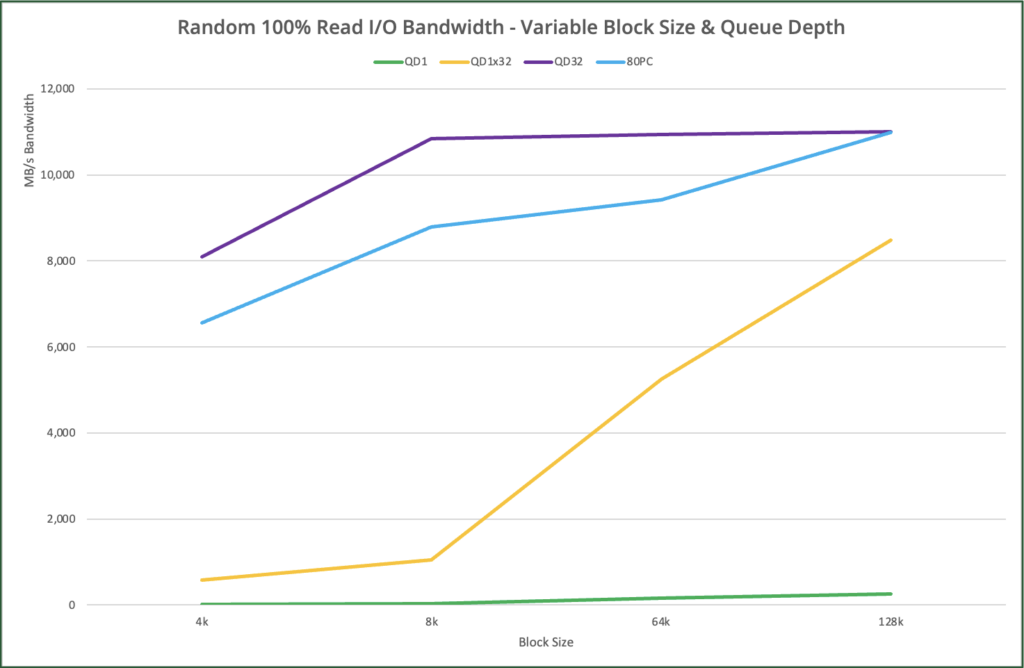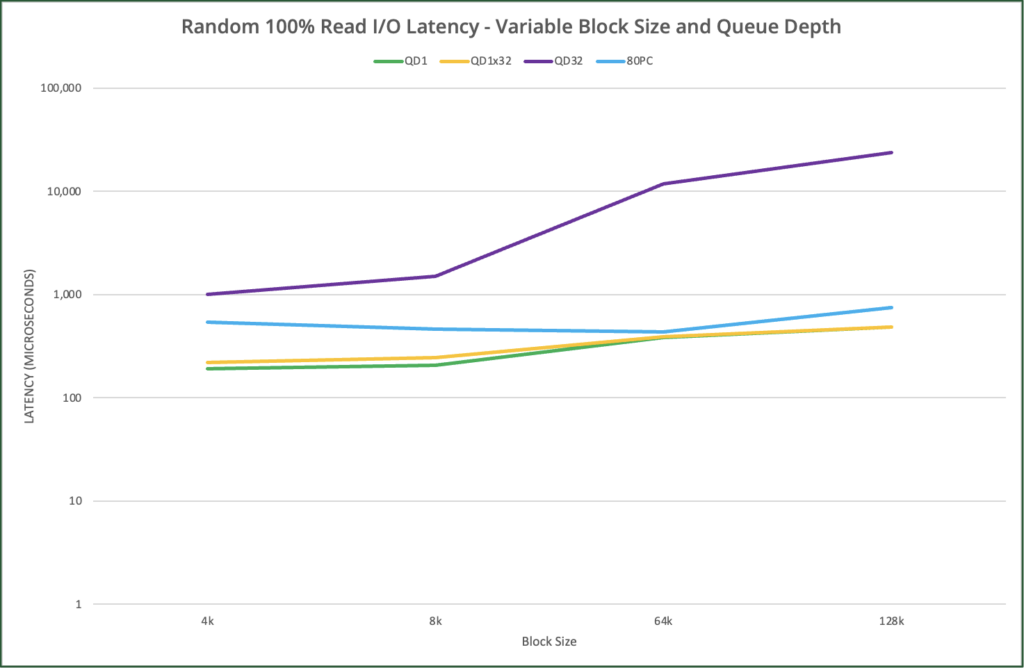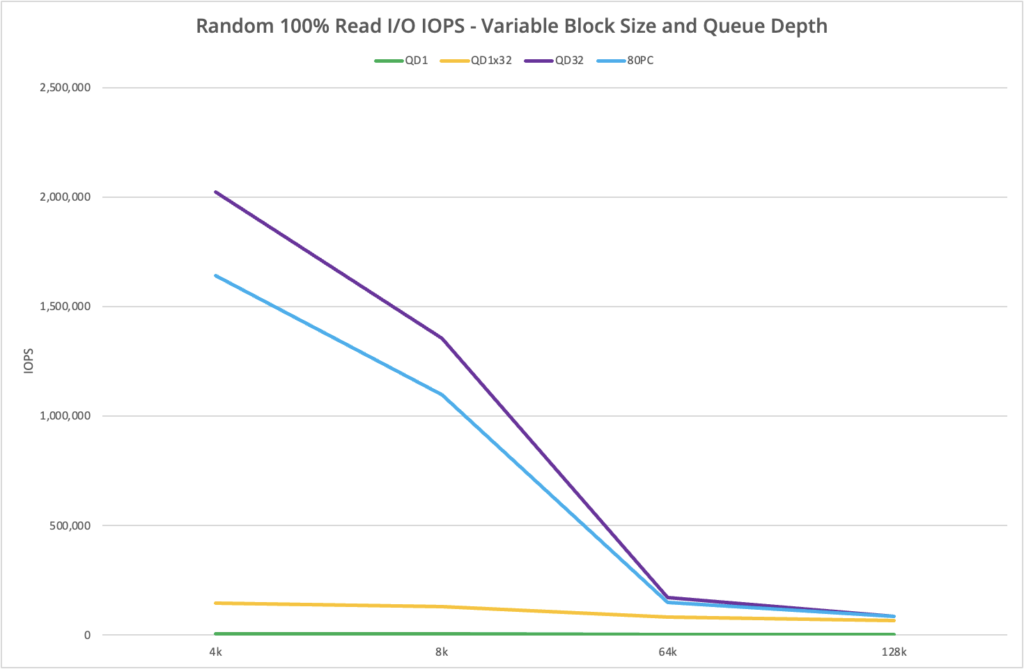Chief Product and Business Officer
John Blumenthal
Download the full research report here
In today’s rapidly evolving IT landscape, the demand for efficient, high-performance storage solutions in the public cloud has never been greater. Traditional Storage Area Networks (SANs) have long been the backbone of on-premises storage, offering reliability and performance. However, the shift to public cloud infrastructure has introduced new challenges and opportunities.
Challenges of public cloud storage
In the public cloud, customers pay for resources, and without the right architecture and platform, costs can quickly escalate even while performance deteriorates. It is vital to ensure that all virtual instances and distributed storage instances are fully utilized.
To address these challenges, Volumez has developed a SaaS-based platform that orchestrates local cloud-based instance storage to create a virtual data infrastructure plane that provides NVMe storage to virtual instance or container-based applications. The Volumez solution aggregates storage from multiple virtual instances, turning it into a resilient data infrastructure where you can choose guaranteed delivery of latency, IOPS and throughput metrics per application instance using pre-defined or customisable policies.
Volumez’s participation in independent research
Volumez recently participated in an independent research study conducted by Chris Evans at Architecting IT, where they tested our claims that distributed data plane technology can efficiently aggregate ephemeral instance storage to deliver a resilient data infrastructure. During the benchmark tests, Architecting IT validated the capability of Volumez to deliver sustained, guaranteed performance at sub-millisecond latencies across a mix of workload types and data profiles.
To validate the Volumez performance claims, Chris used three standard metrics that are widely used across the industry.
- Latency – a measure of the time taken to complete a single I/O operation, measured from the perspective of the application. Latency is usually quoted in milliseconds or microseconds. Lower figures are better. Latency directly affects the performance of applications where transactional consistency is important, such as structured databases.
- IOPS – the capability of a storage system to process I/O requests, or I/Os Per Second. Higher IOPS values are better. IOPS are important for streaming applications or those processing large volumes of data.
- Bandwidth – the amount of data a device or system can transfer over any given period of time, typically measured in MB/s (megabytes per second) or GB/s (gigabytes per second). Larger values are better. Bandwidth is important for applications that need to process large quantities of data, including multi-threaded tasks. Bandwidth is sometimes referred to as throughput.
In the tests performed in this analysis, Chris measured IOPS and bandwidth of the Volumez solution, then optimised the configuration for latency.
Key findings
The results demonstrate that the Volumez platform successfully abstracts the physical aspects of instance storage from the application requirements of IOPS, bandwidth, and latency. Simultaneously, the storage and network resources are delivered with minimal overhead, forming an optimized, balanced, and linearly scalable data plane that leverages the full performance capabilities of the public cloud provider’s physical infrastructure.


Here is a summary of the key findings from Architecting IT:
- Volumez aggregates resources into a pool from which abstracted metrics of IOPS and throughput can be assigned. Pooling consolidates fragmented demand and smooths the peaks and troughs across many virtual instances. The result is a high watermark of demand much lower than simply aggregating the requirements of each virtual instance application. Data infrastructure is thus tailored to the requirements of each workload, with policies differentiating and guaranteeing performance, which can be scaled linearly to continuously align with increasing workload demands.
- Volumez can use high-performing instance storage, which is typically ephemeral. Volumez adds resiliency and predictability to the raw storage capacity. Pooling and aggregation also enable Volumez to deliver IOPS and bandwidth capabilities to a single instance that may not be available with existing storage options.
- Volumez supports the dynamic changing of performance metrics, independent of capacity or the application instance configuration. This means I/O can be scaled linearly, boosted, or removed from a virtual instance without intervention. Through the use of policies, these changes can be implemented across tens of thousands of instances with a single click.

Conclusion
Volumez is at the forefront of redefining public cloud storage, offering a robust, scalable, and cost-effective cloud data infrastructure. By addressing the limitations of traditional SANs and overprovisioning, Volumez provides a dynamic and efficient data infrastructure that meets the demands of modern applications.
Discover how Volumez can transform your public cloud storage strategy. Download the full performance benchmarking report today!
Chief Product and Business Officer
John Blumenthal
John Blumenthal is the Chief Product and Business Officer at Volumez, bringing extensive experience in storage and cloud infrastructure. He previously co-founded CloudPhysics, a SaaS-based operational analytics platform, which was acquired by HPE, where he oversaw the development of new SaaS data services on the GreenLake cloud platform. At VMware, John led storage product management, driving advancements in the vSphere storage stack and initiating VMware’s entry into the storage market with vSAN.
